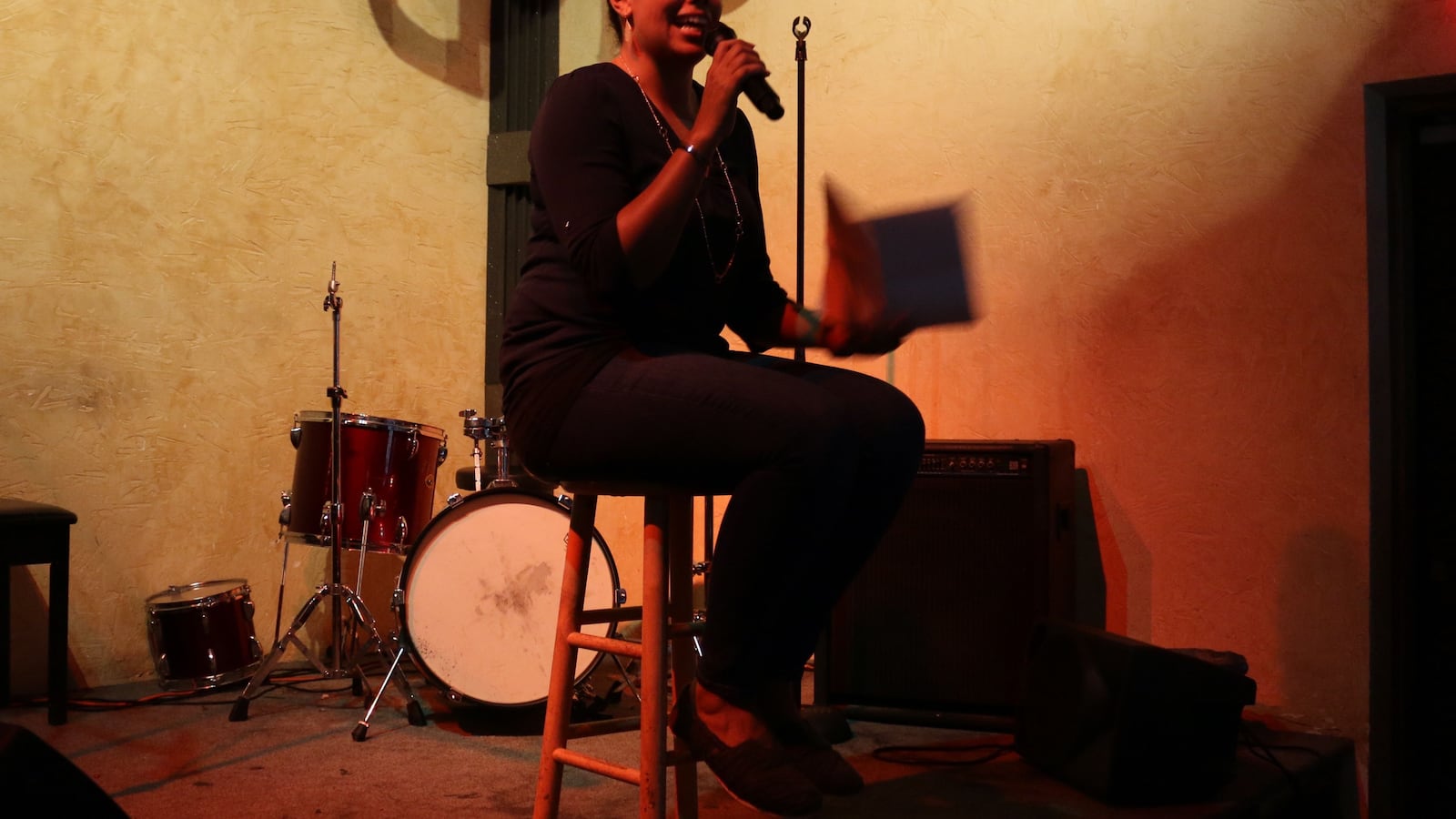My first year teaching, at a school in the South Bronx, I taught across the hall from a woman who had been teaching for 25 years. The year that I started was the last year before she retired. Mrs. McCants kept me from quitting more than once, and was always checking in on me at the end of the day to see if I was OK.
I, in turn, was constantly in her classroom, watching her and her kids. I watched how quickly and quietly they would line up, or how when one kid tripped on the way to the rug, others crowded around him and asked if he was OK. During book club conversations, students would argue about parts of a book, but end with, “I hadn’t thought about it like that before.” I spent most of my time thinking, “How does she DO that?!”
That year, I tried so hard to emulate her. But I never figured out what she was doing that was so different from what I was trying. During closing circle, she’d ask her students about their favorite part of the day, and they’d begin a compliment chain. I asked my students and five yelled “recess,” two did cartwheels and one was sticking her finger in a socket. If we had a good day, it felt like an accident. I couldn’t tell you what I’d done to make it good.
I’m in my 10th year of teaching and I still think about Mrs. McCants all the time. I spent the last five years teaching in an ICT [integrated co-teaching] setting, which is where there are two teachers in the classroom. Most of that time was spent at a “no excuses” charter school, where every moment was regulated by a behavior system. The wiggle of a pinky could get you in trouble.
When I first got there, I thought, “So this is it! This is how Mrs. McCants did it — she watched their every move and gave consequences accordingly.” It took me a long time to realize that the joy in her room didn’t come from the consequences she gave. But at the time, I felt I’d found an answer.
This year feels a lot like my first year again because I’m on my own, no longer at the charter school. It’s just me and the kids.
I’m still struggling to figure out a behavior system that feels right. This year, my kids and I came up with one: Kids can earn stars or reminders. A reminder is if you’re interrupting learning so much so that you have a hard time getting back on track and so does everyone else.
At the end of the week, we have “choice time,” which is a period of free play, and you get to go to choice time if you have less than five reminders for the week.
Now, I try not to give reminders. I try to give conversations, notes, deathly teacher stares. But sometimes, you get a reminder.
The first week we tried this system, my student Joshua got 13 reminders. “Joshua, please don’t tape all of the pages of the book shut.” “Joshua, please stop singing ‘Let it Go.’ It’s silent, independent reading.” “Joshua, Post-Its are not confetti. Please stop throwing them in the air.” Joshua didn’t make it to choice time that week.
At the end of the next week, we’re getting ready for choice time, and I see that Joshua has way more than five reminders again. I’m thinking about what to do when Adam raises his hand.
“Can we change something?” he asks. “Can we give away our stars to other people, and the stars can erase their reminders?”
I’m thinking, “Sure, that sounds nice. You can give stars to other people.”
So Adam immediately says, “OK, I want to give a star to Joshua.”
And then another hand goes up and Valerie says, “I want to give a star to Joshua, too.”
I’m sitting there marking the stars on our behavior sheet, and when I look up, almost everyone else is waiting with their hands up.
“I want to give a star to Joshua.” “I want to give two stars to Joshua.” “A star for Joshua …”
And I look over at Joshua as students are giving their stars, and he’s sitting slouched down in his seat, pulling the top of his shirt over his face, crying.
When the kids are done, I’ve run out of room on the sheet — it’s covered with Joshua’s stars.
Joshua wipes his tears, and he goes to choice time with everyone else. Later I ask him, “Earlier, were you feeling really happy or really sad?”
He looks at me and says, “Really happy.”
I’m happy I didn’t quit that first year. Back then, I felt like everything good that happened was a lucky accident, but now I know there’s not much that happens by accident. Almost everything, like a group of kids coming together for a classmate, happens when you let go and give them room to love.
Trilce Marquez is a fourth-grade teacher at P.S. 11 in Chelsea. She shared this story as part of a recent Teachable Moments, a live storytelling event for New York City teachers. If you have a story you want to share at the next Teachable Moments, email teachablemomentsnyc@gmail.com.
About our First Person series:
First Person is where Chalkbeat features personal essays by educators, students, parents, and others trying to improve public education. Read our submission guidelines here.


